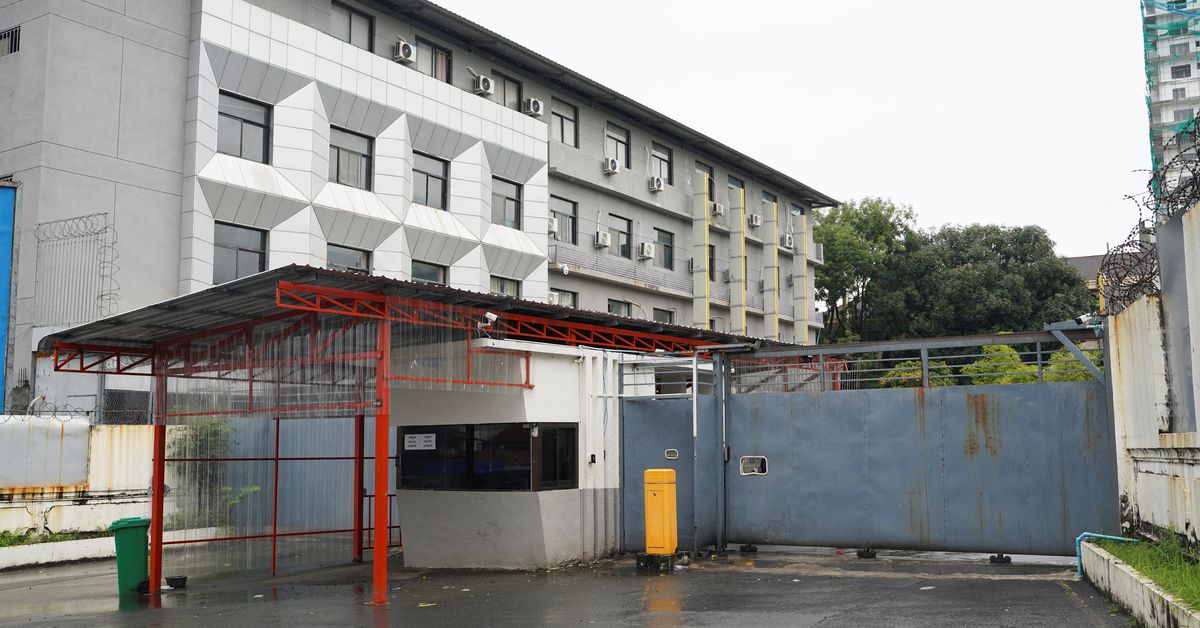Cambodian police raid alleged cybercrime trafficking compounds – Reuters

BANGKOK, Sept 21 (Reuters) – Cambodian authorities said raids are underway this week at suspected cybercrime compounds across the Southeast Asian country, uncovering evidence of human trafficking, illegal confinement and torture.
Regional governments and human rights workers have heaped pressure on Cambodia in recent months to rein in transnational crime rackets that traffic people into the country from across Asia and beyond to work in illegal gambling and linked scam call centres.
Cambodian officials have for months denied reports of abuses and trafficking, but senior officials including Prime Minister Hun Sen have taken a harder stance in recent weeks amid heightened media attention, ordering a crackdown on the shadowy scam operators.
Chhay Kim Khoeun, a national police spokesperson, said on Tuesday that raids were ongoing and police would inform the public of the results when they were complete.
Authorities in the coastal town of Sihanoukville said on Monday they had found evidence of illegal gambling, illegal confinement and torture, prostitution, illegal possession of weapons, money laundering, and human trafficking after a five-day operation targeting one business.
More than 8,000 phones, 804 computers, 36 passports and eight tasers were confiscated, they said in a statement.
Similar raids were reported elsewhere through the weekend and into Monday.
Victims of the cybercrime racket, including many skilled workers with tech expertise, have said they are lured into Cambodia through social media advertisements promising high-paying jobs at casinos and hotels, but are then forced by racketeers to live in compounds and defraud strangers across the globe through internet romance and cryptocurrency scams.
People who have fled such compounds in recent months have reported being detained against their will under brutal conditions.
The United Nations human rights envoy to Cambodia, Vitit Muntarbhorn, said last month that victims were enduring a “living hell”, sometimes resulting in death.
He said victims are being held in maze-like compounds surrounded by high walls and barbed wire, with no contact with the outside world and sometimes subject to torture for failing to meet the racketeers' targets.
“There have been reports of tragic situations of victims fleeing by jumping from their walled buildings to try to escape,” he said in an article published in the Bangkok Post this month.
Cambodian and Thai authorities have previously said the wider racket is Chinese-run, but have not provided details.
Jeremy Douglas, regional representative for the U.N Office on Drugs and Crime, told Reuters the raids were a good start but that the underlying causes needed to be addressed.
“It is fine to move on locations like we've seen in recent days, but if authorities react case-by-case, the groups involved will just jump to new locations and the situation won't really change – these centres can be moved quickly,” he said.
Reporting by Reuters newsroom; Editing by Kanupriya Kapoor and Raju Gopalakrishnan
Our Standards: The Thomson Reuters Trust Principles.
This “Eyes on Trafficking” story is reprinted from its original online location.
 ABOUT PBJ LEARNING
ABOUT PBJ LEARNING
PBJ Learning is a leading provider of online human trafficking training, focusing on awareness and prevention education. Their interactive Human Trafficking Essentials online course is used worldwide to educate professionals and individuals how to recognize human trafficking and how to respond to potential victims. Learn on any web browser (even your mobile phone) at any time.
More stories like this can be found in your PBJ Learning Knowledge Vault.
EYES ON TRAFFICKING
This “Eyes on Trafficking” story is reprinted from its original online location.
ABOUT PBJ LEARNING
PBJ Learning is a leading provider of online human trafficking training, focusing on awareness and prevention education. Their interactive Human Trafficking Essentials online course is used worldwide to educate professionals and individuals how to recognize human trafficking and how to respond to potential victims. Learn on any web browser (even your mobile phone) at any time.
More stories like this can be found in your PBJ Learning Knowledge Vault.
